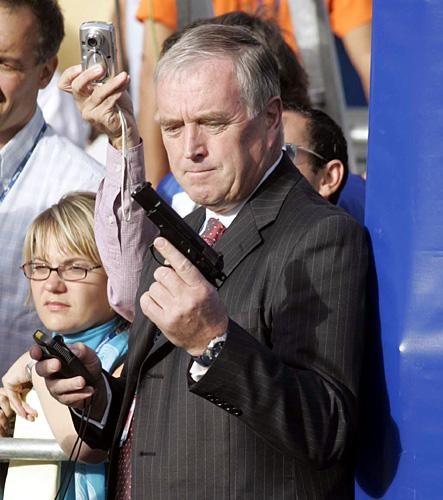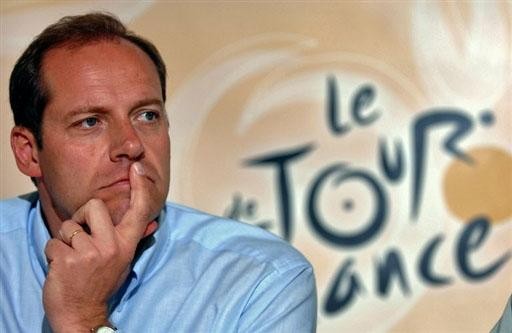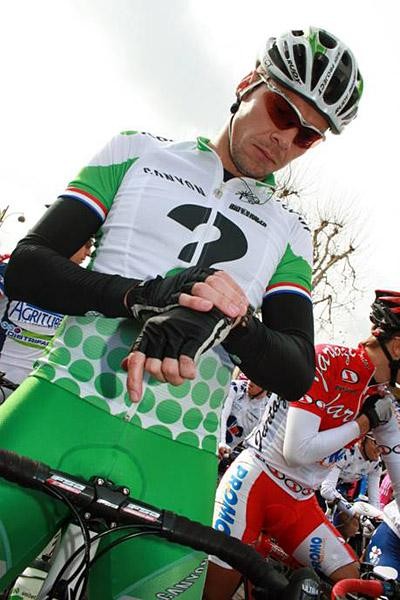Cycling set for a showdown
Cycling seems less like a sport these days and more like a Hollywood western: the battle between the...



Cycling seems less like a sport these days and more like a Hollywood western: the battle between the Wyatt Earp of cycling, UCI president Pat McQuaid, and the cattle-rustlin' cowboys of race organisation, the Amaury Sport Organisation (ASO), is set for the grand climax at this weekend's Paris-Nice. Life in Tombstone has become dangerous indeed in the past few weeks, and the townspeople - the riders and teams - have been forced into a position of diving for cover (see Track hopefuls skip Paris-Nice) or simply going about their daily business of racing while the bullets fly overhead.
At stake is the future of not just the ProTour, but of the very authority of the UCI. The ASO has calmly gone about moving the race out from under the UCI's grasp while the governing body, backed into a corner, has fought back with threats of sanctions against the riders, the teams and even the French Cycling Federation. The ProTour teams association (IPCT) appealed to the Court of Arbitration for Sport (CAS) asking that it rule on the legality of the UCI's proposed sanctions, but CAS declined to take on the matter.
What's left is for the riders to either toe the line on Sunday or not, and according to the AIGCP (Association of Professional Cycling Teams), the majority of the riders are in favour of taking the start. Whether the UCI will actually fine and suspend those on the start list remains to be seen, but the riders have already sought protection against any repercussions should the sanctions go through.
Controversy from day one
If you've been sitting on the sidelines scratching your head and wondering, "how did we get here?", you're not alone. A quick glance through the history of the ProTour vs. Grand Tour conflict will show that the evolution of the new race series has led to a host of problems.
Conceived as a way to elevate cycling to the stature of Formula 1 through a more unified and easily identifiable circuit of top professionals, the ProTour never got a chance to reach those lofty goals. From the very start, cycling's "Big League" came under harsh criticism from the Grand Tour organisers (GTs) who viewed the structure as "closed".
Way back in 2004, ASO's Christian Prudhomme explained, "The ProTour is a closed four year system with no possibility of up or downgrading teams," he said. "If a team has a bad year, it still remains within the ProTour, but another team getting great results cannot move up into it. Instead of applying a similar system to soccer for example, [then UCI president] Hein Verbruggen chose to imitate the American closed structures of NBA, NHL or NFL. He also followed their franchise system, that he calls 'licenses'. And he obliges race organisers and teams to pay these rather costly licenses."
The latest race content, interviews, features, reviews and expert buying guides, direct to your inbox!
We've heard Prudhomme and ASO boss Patrice Clerc rail against the "closed" system for the past four years, but wasn't that all solved when the races organised by the GTs were removed from the ProTour calendar? Not exactly, because while the UCI placed most of the GTs races on a separate calendar which allowed for organisers to invite more Professional Continental teams, they still insisted that all ProTour teams be invited to race the Tour de France.
Prudhomme's words of 2004 put it succinctly. "For the organiser, it boils down to being tenant of a race, rather than owner of one."
A long history
The argument has changed little since 2004. The UCI has attempted to promote the ProTour while fending off annual threats from the Grand Tours to leave the series. In 2005, the three Grand Tours organisers, ASO, RCS Sport and Unipublic announced they would separate from the ProTour and form their own 'Grand Tour Trophy'.
After tense negotiations, the GTs plan was put on hold, and the Giro d'Italia, Tour de France and Vuelta a España were included in the ProTour during 2006 and 2007 after the UCI made a compromise. They agreed to reduce the number ProTour licenses from 20 to 18, opening up more wild card slots for the organisers, and to consider handing out licenses with a shorter term than the original four years, opening up the system to more teams.
At the end of 2006, however, the UCI handed out 20 licenses anyhow, raising the ire of ASO president Patrice Clerc. The GTs responded by refusing to invite the Unibet.com team to Paris-Nice and most of their other events, and the crisis came to a head before last year's Paris-Nice.
In a last minute negotiation, a temporary peace deal was arranged where the GTs would recognise the original 18 ProTour teams and treat the last licenses, Astana and Unibet.com as wild cards. In reality, that meant Astana was allowed entry into the Tour de France while Unibet stayed on the sidelines. The decision came back to haunt the ASO when Astana's Alexander Vinokourov tested positive for blood doping during the Tour and the team withdrew from the event.
With only 18 ProTour teams left after the demise of Unibet.com and Discovery Channel, why should the GTs still object to the ProTour? The UCI still requires that the ProTour teams race in the Tour de France, although McQuaid has indicated that he may negotiate that point if the teams agree to it, giving a slight glimmer of hope that peace could be on the horizon.
However, with less than 48 hours before the start in Amilly, it is highly unlikely that the UCI will be in charge of Paris-Nice no matter what peace deal can be worked out. With threats of suspensions hanging over their heads, the riders will take to the roads in Amilly, but who will be the last man standing?
Cyclingnews' recent coverage of the ProTour-Grand Tours split
October 4, 2008 - New ASO chief to maintain values
September 26, 2008 - UCI declares peace, appoints new VP
August 30, 2008 - UCI re-signs five ProTour races
August 22, 2008 - ProTour: Bouncing back or lame duck?
August 19, 2008 - Stapleton analyses 'world calendar'
August 18, 2008 - Feedback on 'world calendar'
August 18, 2008 - UCI announces 'world calendar'
Cyclingnews' complete coverage of the ProTour-Grand Tours split